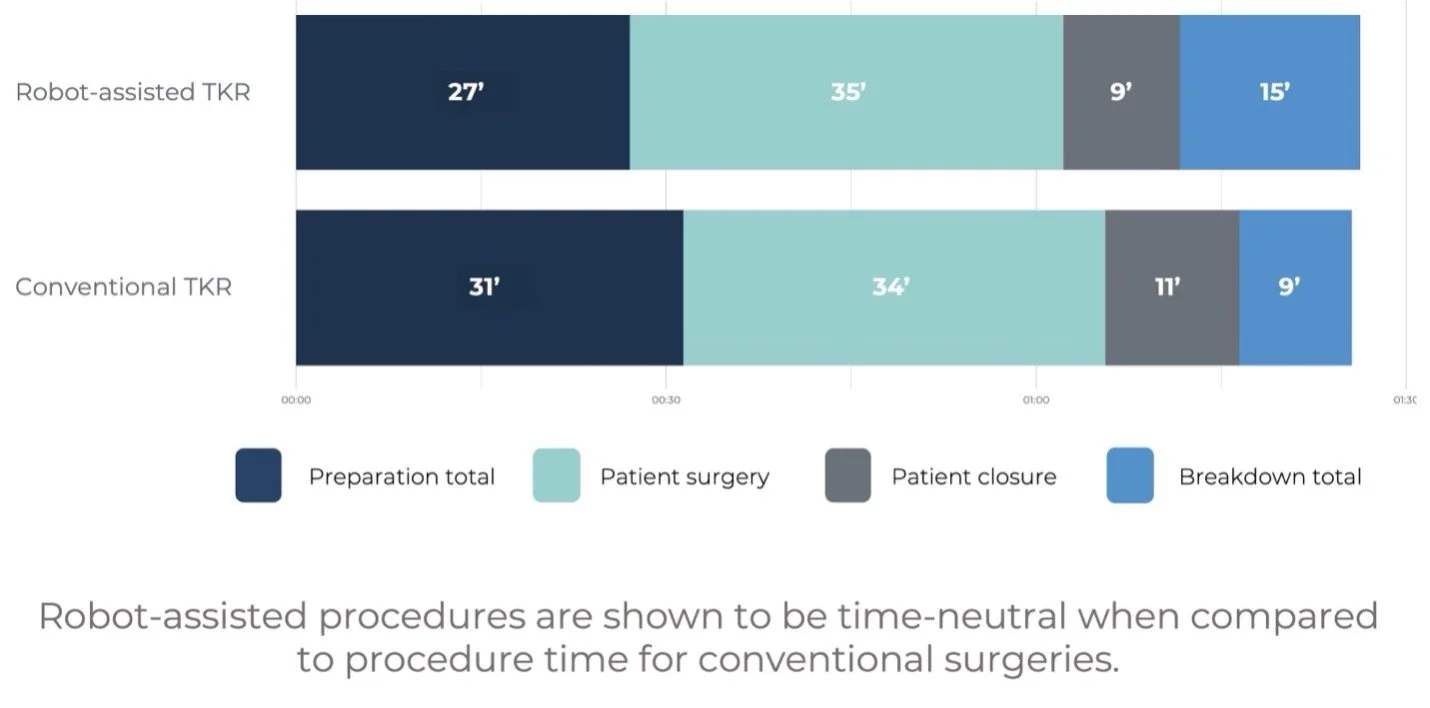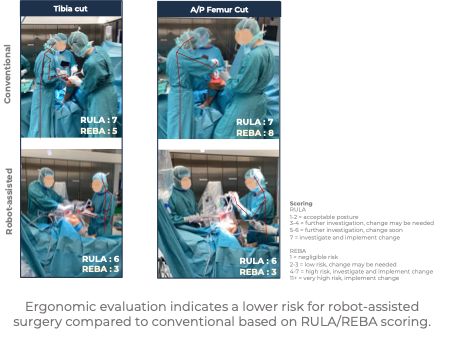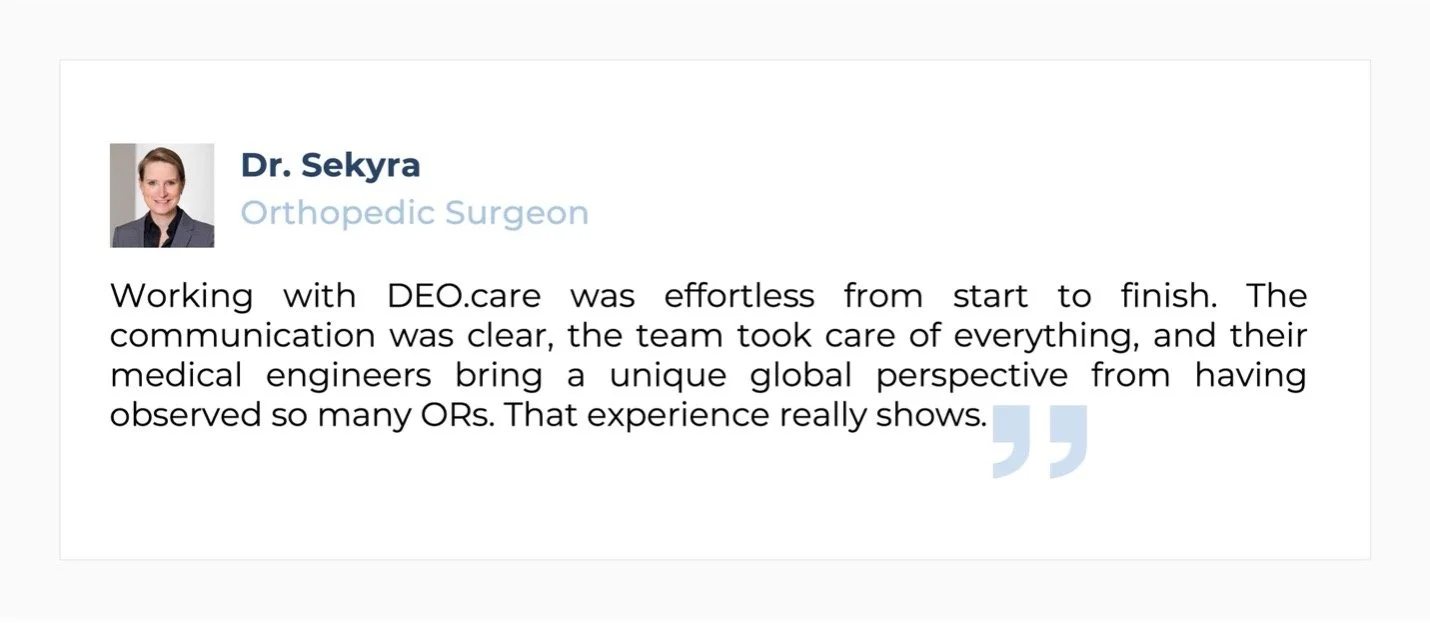Dr. Sekyra, AT: Balancing efficiency and ease in robot assisted surgery
At Herz Jesu Hospital in Vienna, Dr. Sekyra has performed over 700 robotic-assisted knee replacements. With DEO.care’s digital twin analysis, her workflow proved just as efficient as conventional surgery while improving precision, ergonomics, and team wellbeing.
At Herz Jesu Hospital in Vienna, Austria, Dr. Sekyra has built her reputation as an efficient and highly experienced knee replacement surgeon. Having performed conventional and navigated knee replacement surgery, she transitioned to robotic-assisted surgery and has already completed more than 700 procedures.
Through DEO.care’s process mapping and digital twin analysis, her robotic-assisted surgery procedures have been shown to maintain time-neutral efficiency, support a consistent daily throughput of five-cases, and enhance ergonomics in the OR.
Digital twin analysis
With DEO.care’s methodology, the entire operating room (OR) process was measured and simulated by creating a digital twin of Dr. Sekyra’s OR. Comparing conventional and robotic-assisted procedures, the findings were clear:
Time-neutral performance: Robotic-assisted surgery matches Dr. Sekyra’s already efficient conventional workflow.
Embedded into the flow: The system integrates seamlessly into preparation and breakdown, with parallel processes supporting the entire surgical day.
Exceptional consistency: Limited variability across procedures highlights predictable, repeatable flows that reduce uncertainty for the team.
For Dr. Sekyra, this means robotics enhances precision and personalization without disrupting her established efficiency.
Wellbeing and ergonomics
The use of robotic-assisted surgery has also had a positive impact on the OR team’s wellbeing:
Reduced workload: Optimized tray sets lighten the load by 20 kg per procedure — amounting to 100 kg saved across a day.
Improved ergonomics: Posture analysis (RULA-REBA scoring) confirmed better ergonomics during robotic-assisted procedures.
Lower strain: Retractor holding and power tool usage are both significantly reduced, allowing surgeon and staff to complete the same number of cases with less fatigue.
Dr. Sekyra summarizes this process, “Robotic-assisted surgery has been a real gamechanger. It has given me a completely new way of looking at the knee, every case feels more personal. And at the same time, surgery has simply become easier. I can finish a full day of cases and feel less tired than before.”
A new mindset
For Dr. Sekyra, the move to robotic-assisted surgery was deliberate and purposeful. Her experience demonstrates that it is possible to maintain time-neutral efficiency while performing five procedures a day with improved ergonomics, all while applying a personal approach to each case.
The entire process with DEO.care was collaborative and effortless, supporting Dr. Sekyra in illustrating and validating her workflow. Her experience highlights how robotic-assisted surgery can benefit both surgeon and staff while maintaining high throughput, reflecting a new mindset in joint replacement and a model for a smoother, more sustainable OR workflow.



